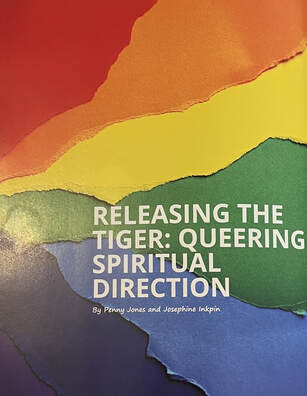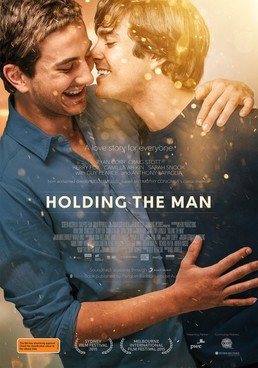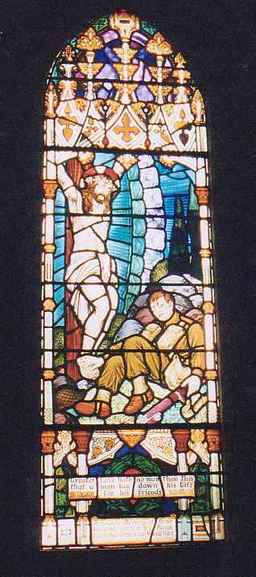 This paper (by the Revd Penny Jones and myself) was originally published in Coolamon, Issue 7 March 2023, the journal of the Australian Network for Spiritual Direction). It can be downloaded here. It explores some ways in which LGBTQ+ people contribute to our changing experience of God and reveal paths of enriching spiritual transformation. For sexual and gender identities have been at the heart of some significant recent features of both spiritual growth and conflict. From the late 1960s,1 lesbian, gay, bisexual, transgender and questioning (LGBTQ) 2, or queer3 people have formed increasingly effective social and political movements, transforming many cultural, legal and philosophical norms across the world. For many, this has also involved deliberate or unconscious spiritual expression. Progress has however been uneven, across time and space, and traditional religious formations and spiritual norms have been particular obstacles. Differing, and sometimes conflicting, conceptions of queer people and their gifts are therefore inevitably present within the spiritual direction space. Deeper exploration of these, and the underlying lived spiritual experience of queer people, is thus vital for the further flourishing of all involved. Indeed, whilst aspects may be challenging for some, the authors of this paper affirm that queer spiritual experience and understanding offers gifts which provide renewing insights for spiritual direction practice as a whole. Without unduly entering into wider controversies over sexuality and gender, this paper therefore suggests some life-giving ways to engage. These include exploring aspects of “queer virtues” identified by queer spiritual theologians and the metaphors of “coming out” and “transition” as embodiments of the paschal mystery and healthy, holy, transformation...
1 Comment
 It was a delight yesterday to see the film Holding the Man with one of my most lovely, compassionate and Spirit-filled gay friends. Based on the poignant 1995 memoir of Tim Conigrave, Holding the Man (a resonant expression drawn from Australian Rules Football) tells the story of the love and life he shared from schooldays with John Caleo, including the struggles they faced with others and their tragic early deaths from AIDS-related illnesses. Adapted by Tommy Murphy in 2006, Holding the Man became one of the most successful of recent Australian stage productions. This film version will hopefully widen the audience much further, honouring Tim and John by increasing light and understanding and strengthening our human solidarity against all kinds of sexual and gendered oppressions. The film is certainly also 'a story of a generation'. From a personal point of view, as an exact contemporary of Tim and John (albeit on the other side of the world), I was indeed touched by remembrances of my own school days, university experiences, and early adult life, especially of wonderful gay and lesbian friends who also endured much pain (including some even to shocking early deaths) whilst vibrantly helping to transform our inherited climate of fear and repression. I also recalled my days as a young priest in London in the 1980s as the horror of the AIDS crisis broke upon so many, together with the horribly fumbled, generally fear-filled and, occasionally, fabulous response of Christians, as church bodies and individuals. How far have we come? In many ways, we have traveled a long way, even in Christian circles. Yet only a few days ago the New South Wales Government banned the showing in schools of the film Gayby Baby, which offers the opportunity to enter into the experiences of children growing up in lesbian and gay families. All credit therefore to Dendy Newtown for screening Gayby Baby at this time, to encourage others to enlarge understanding and provide public pressure upon uncertain authorities. Indeed, as we bought tickets for Holding the Man, my friend observed to the young cashier that he had had to travel from the Central Coast to find the nearest screening. 'How sad', in this day and age', she replied, 'that cinemas everywhere aren't showing it.' For all the gorgeous steps taken, we are still very much on the journey of compassion and solidarity, never mind of celebration. Indeed, alongside admiration for so many like Tim Conigrave and John Caleo, I was left yesterday with deep sadness, and renewed frustration and anger, at the slowness, and sometimes sheer reaction, of so many Christians fully to love their sexual selves, so many of their 'neighbours', and their God of infinite compassion and creative diversity. In the context of my generation, the negative responses of Church authorities and Christian parents to Tim and John's love was more understandable, though no less shocking and stabbing to the very heart. I rejoice in those, across the world and from so many Christian traditions, who are seeking to walk a different pathway, centred on a Christ of a very different yet authentically biblical hue. Compared to the wider western world however, and even the attitudes of the bulk of our own church membership, I fear the institutional church is still a very long way from where we should be. As Aussie Rules would have it, if we are not, in different ways, 'holding the man', then we are so often either not even on the paddock, or 'holding the ball' of a bygone generation. May we be kissed afresh with peace, joy and understanding.  Like her or loath her, Melinda Tankard Reist has made an impact. Listening to her in Toowoomba yesterday, I was struck by the challenge and cost of the activism she lives and calls others into. I would not personally agree with exactly everything she says. Yet she remains one of the foremost contemporary 'pro-life feminist' voices and her grassroots campaigning movement Collective Shout is a lively force against the objectification of women and the sexualisation of girls in media, advertising and popular culture. Melinda is also a powerful encourager and embodiment of activism. Indeed, as the Glennie School and others locally have found this week, she is a particular inspiration to girls and women to stand up for themselves and for the needs of others. Does Melinda sometimes overestimate the negative effects of pornography and over-emphasise prohibition and protection rather than choice and liberation? Perhaps. Does her socially conservative background cause liberal concern? Maybe. How far does she contribute to the deep and thorny challenges of working through shame and honour, economic, cultural and gendered power, and the place of eros, sexual identity and expression in our contemporary world? Feminists seem divided on whether they agree with her or not, and how she contributes to their cause. Yet, whatever her own failings - and all activists have them - all would surely agree that she is an impressive agent provocateur for activism...  One of the most shocking aspects of many true mystics is the use of erotic imagery in accounts of their spiritual experience. Neither Reformation Protestantism and Tridentine Catholicism found this comfortable and their legacy of repressive suspicion continues within much of Western culture today. In recent times however there has rightly been a gradual rediscovery of this vital tradition. Within Christianity this has been aided by the rise of Christian feminism which has sought to honour the long despised lives and experiences of women. This has brought about a slow but significant re-evaluation of the place of the body, touch, tenderness, desire and the sensual in spiritual expression and symbolism. In the process, the very earthy nature of most biblical experience has been highlighted, including the typically sensate character of most of Jesus' encounters with women and men, even/notably in the accounts of the Resurrection. Female mystics such as Julian of Norwich, Hildegard of Bingen, Hadewijch of Brabant and Mechtild of Magdeburg have also been happily 'rediscovered' and acclaimed. What is often less prominent, perhaps because it is arguably even more subversive to patriarchal religion, is the acknowledgement of similar experience and tradition among men. This has been greatly aided by gay men's experience but is no mere contemporary novelty or confined to sexual orientation. Admittedly somewhat corralled by Neo-Platonist and ascetic concerns, it was after all Origen (the greatest of the earliest church theologians) who was the great founder of Christian erotic spiritual symbolism and it was Bernard of Clairvaux, the great medieval monastic reformer, who was its greatest champion. More widely however it is also found, often in unacknowledged and awkward silences, in the experience of otherwise 'ordinary', heterosexual men. For me, this has always been powerfully expressed in Billy Bragg's song Tender Comrade, speaking evocatively of the anguish, vulnerability and bonds of love of otherwise very masculine men in the face of adversity. In St Luke's Toowoomba, it is similarly poignantly seen in the Warriors Chapel side window, where a struggling soldier reaches out to touch the feet of the crucified Christ. This is no denial of the toughness of God and of human conflict. It is however a pointer to the deeply intimate nature of love at the heart of all our being. For Christians, male and female, gay and straight, are called to be both lovers and transforming soldiers of Christ: tender comrades of deep intimacy. |
AuthorJo Inkpin is an Anglican priest serving as Minister of Pitt St Uniting Church in Sydney, a trans woman, theologian & justice activist. These are some of my reflections on life, spirit, and the search for peace, justice & sustainable creation. Archives
July 2024
Categories
All
|
 RSS Feed
RSS Feed